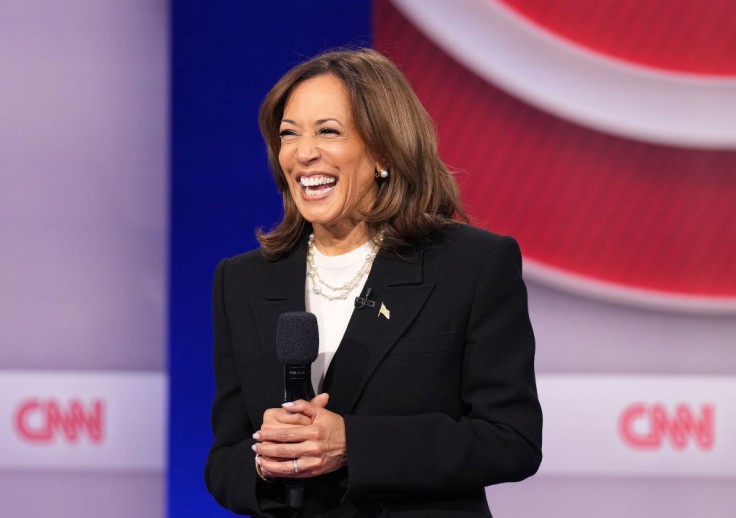
During an April campaign rally, President Joe Biden touted his ambitious "life-changing" student loan cancellation plan to a Wisconsin audience, promising relief for over 30 million Americans. However, as Vice President Kamala Harris takes the reins as the Democratic nominee, the issue has largely faded from her campaign trail rhetoric. Harris, who has replaced Biden as the party's presidential candidate, has barely mentioned student loans in her speeches, opting to appeal to moderate voters with policies prioritizing Americans without a college degree.
At a September rally in Wilkes-Barre, Pennsylvania, Harris emphasized the need for the country to value alternative career paths beyond a four-year college degree. "For far too long, our nation has encouraged only one path to success: a four-year college degree," she said, drawing applause as she highlighted plans to remove unnecessary degree requirements for federal jobs.
In recent years, student loan cancellation has transformed from a key Democratic talking point to a controversial issue. Republicans have seized upon it as an example of catering to elites, criticizing it as unfair to those who have either repaid their loans or never attended college. This shift has turned the topic into a political liability for Democrats, as seen in the latest presidential debate where former President Donald Trump criticized Harris and Biden for failing to deliver on their promise of widespread loan forgiveness, calling it a "total catastrophe."
Legal Challenges and Changing Political Dynamics
Biden's efforts to deliver student loan forgiveness have faced numerous legal obstacles. Initially, the Supreme Court blocked his plan to forgive up to $20,000 for millions of borrowers last year. A subsequent, more limited plan has also been paused by a federal judge following lawsuits from Republican-led states. Additional measures aimed at reducing payments for struggling borrowers have similarly been halted due to legal battles.
Most recently, the Biden administration introduced a new approach targeting Americans with significant financial burdens beyond their student loans. The move comes less than two weeks before the upcoming Nov. 5 election and remains uncertain, given the legal hurdles ahead.
According to Michelle Dimino, education program director at the centrist think tank Third Way, the ongoing legal battles have likely influenced Harris' cautious approach.
"There's not too much new she can offer before we know what will happen in the courts," Dimino said, according to AP News."Now, it's a totally different landscape than it was in 2020, when it was a clean slate."
Harris's decision to downplay the issue reflects the political risks involved, particularly in a closely contested election. Reviving the promise of loan cancellation could energize Republican opposition and alienate moderate voters. As Preston Cooper from the American Enterprise Institute said, "The Harris campaign has realized this is not necessarily a winning political issue."
Student Loan Cancellation's Declining Popularity
Public support for student loan cancellation has declined, including among Democrats. A June poll from the University of Chicago and AP-NORC found only 3 in 10 Americans approve of Biden's approach, with just over half of Democrats and 18% of independents supporting it.
Harris has avoided specifics on loan cancellation, briefly mentioning it in her platform while prioritizing policies for non-degree holders. She focused on skills-based hiring at a Pennsylvania rally, saying degrees don't necessarily reflect skills.
Andrew Gillen from the Cato Institute noted Harris' shift likely aims to appeal to non-college-educated voters, as loan forgiveness has become politically divisive. This pivot indicates a strategic move to gain moderate support and distancing from the loan issue.
© 2026 University Herald, All rights reserved. Do not reproduce without permission.








